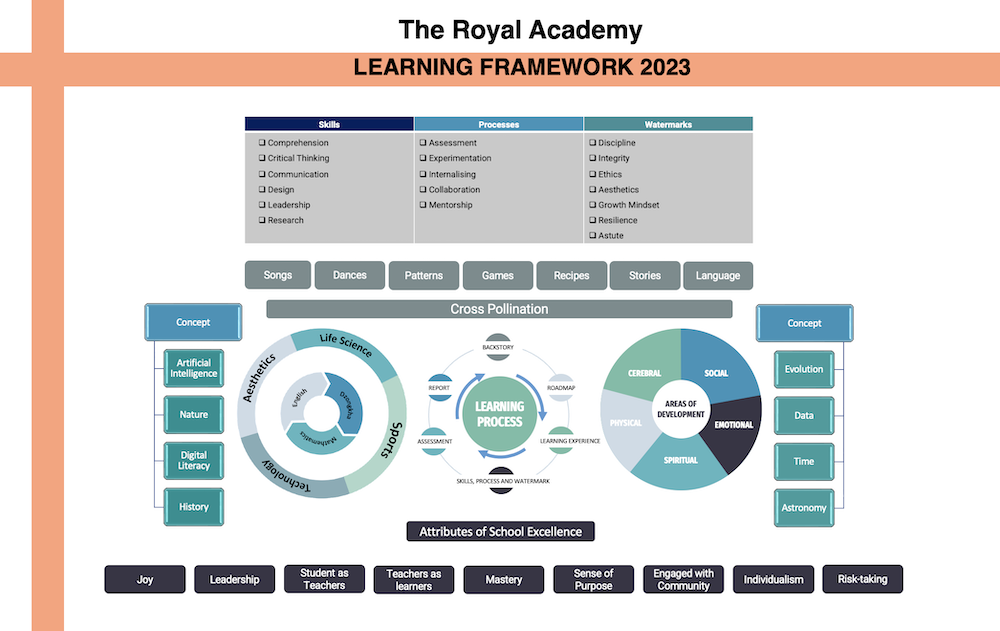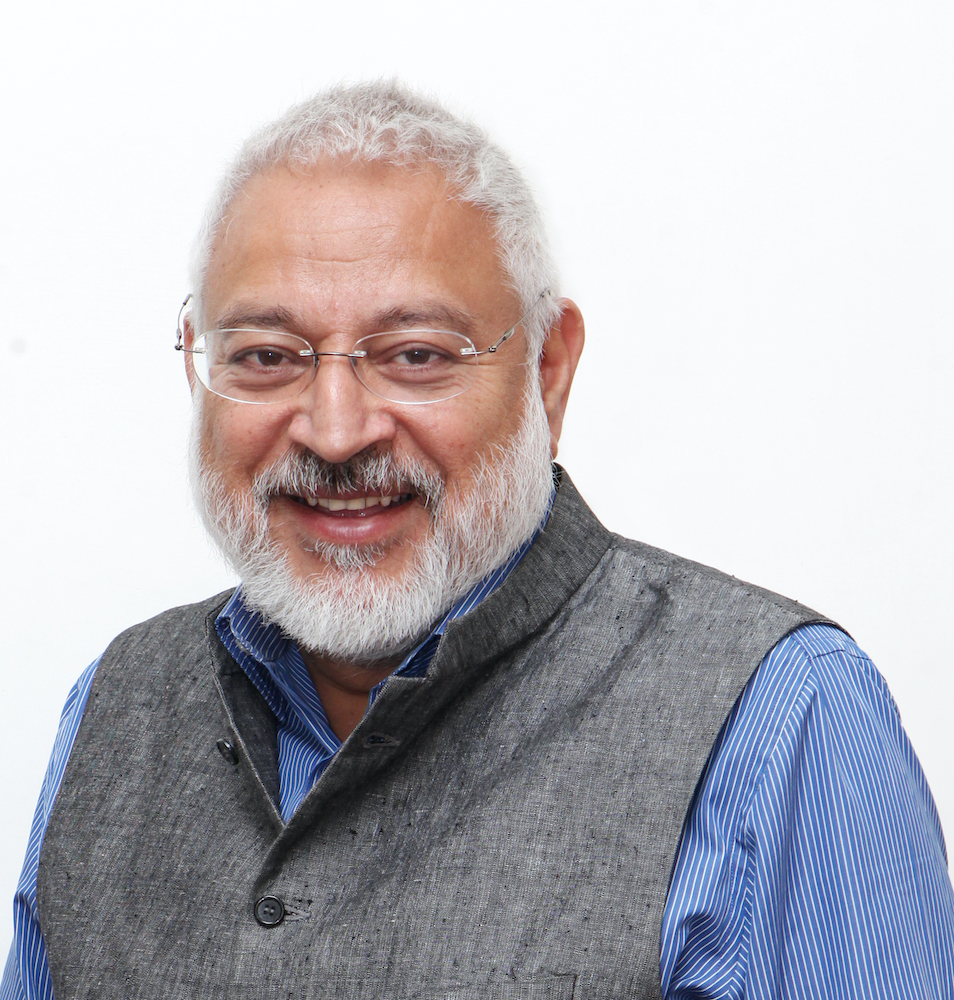Q&A - Arun Kapur
Arun Kapur began his career as a classroom teacher in 1977, working in both conventional schools and less formal educational settings, such as night schools and centers for incarcerated youth. Nearly 50 years later, his passion for teaching and learning remains as ardent as ever and has inspired a critical examination of traditional approaches to education around the world. At present, the Five Areas of Development framework, designed by Kapur and his team at the Royal Academy of Bhutan, is being piloted across the Kingdom in an effort to help educators shift their approach toward holistic instruction—considering the cerebral, emotional, physical, social, and spiritual development of each student.


Kapur will be joining us at FAB23 Bhutan this summer as a speaker and panelist in the Youth and Education Symposium. And we were fortunate enough to catch up with him ahead of the event to learn a bit about what he hopes to teach and learn at the conference.
Fab Foundation: Let’s begin with the work that you and your team at the Royal Academy are doing, specifically the Five Areas of Development framework. What inspired the framework’s creation?
Kapur: For many, schooling has become an end in itself, which overlooks the education side of it. As has been said by people all over the world, we have become an over-schooled and under-educated society. In what is called mainstream education, you typically look at academic growth. But we prefer to use the term cerebral growth because there is so much more to the cerebral side of life than just academics. We also look at the social situations that have such a huge impact on us, our emotional side, which is a very important aspect of growing up, physical development, and, of course, spiritual growth—while very deliberately not talking about religion or any other such straitjacketed ways of looking at personal transformation. All of these things make up a full human being.
To be able to get a holistic view of a learner, it becomes necessary to go beyond the academic. The main purpose for us is to help children actualize their potential; and we deliberately use the word actualize, rather than maximize, because the idea of maximizing seems to place a cap on potential. We feel that our job is to help children actualize their potential across the Five Areas of Development. We want them to become people of substance. Therefore, authenticity is necessary. And another very important thing is choice. We live by choice; the quality of our choices is what makes the quality of our life.
How is this holistic approach being incorporated into the educational system across Bhutan?
The practical side of our work is to first get teachers to understand the role of the Five Areas of Development in their own lives. And then we say to them, “You have an opportunity to take this into the classroom.” Once that happens, all the teachers in the school begin looking at things differently. Then, the leadership starts looking at not just the academic side of a child—they start to look at a child in a 360-degree fashion and in terms of degrees of growth. And these Five Areas of Development help them see where this child has a real opportunity to grow.
So, assessment becomes important—not just for giving marks, but for us to see where we are. The teachers help the students assess themselves. And, through the Five Areas of Development framework and the Bhutan Baccalaureate, each child is encouraged to make their own roadmap. Therefore, the children themselves are directly participating in figuring out who they are. So, that opens up a whole way of looking at learning and gives a real sense of ownership to the students.
This, hopefully, transforms what is happening inside the classroom. We’re not coming and saying, “What you're doing is wrong.” We’re bringing a new way of thinking that slowly transforms what's happening in the classroom and changes the relationship between teachers and parents, students and leadership. We’re just helping to shift the mindset a bit.
How does this educational philosophy map to the kind of learning that takes place inside a Fab Lab?
It's not great to silo content; that's something that we feel very strongly about. So, in the space of our Fab Lab—which is like a spaceship, with computers and 3D printers and laser cutters—we've also brought in a loom. Traditional weaving takes place alongside the use of these futuristic machines to humanize the space. For a lot of people, the idea of the Fab Lab seems to point only to the future, but I find this to be a really nice joinery piece. You can bring your traditional arts, your traditional design, your traditional way of thinking and then reimagine them on a computer.
We feel that the Fab Lab has a very nice way of connecting practicality and aesthetics. It is designed in such a way that you can bring your designs to reality; thoughts are being converted into real-life things. Without this technology, such opportunities have not been accessible to school kids here previously. And that's really exciting—you can see it in the eyes of the kids and the teachers. We’re taking education and learning into their actual, everyday life so that students don’t just see learning as something that happens during a set time, within a school. With the Fab Lab, learning becomes situated in our aesthetic center, and from there, we remove the silos that separate schooling from other aspects of life.
With that in mind, what would be the best outcome of FAB23 Bhutan for you, in terms of educational impact?
What I find quite fascinating is how much we learn from the children in the Fab Lab. In this environment, the teacher is no longer the sage on the stage; we have to learn to be guides on the side. And this role has to be interchangeable with the children. The role of an adult and a child kind of disappears. There is nobody who's a teacher, but rather a whole group of learners who are learning from each other. It’s a dualism. And the combined learning that emerges is so much more powerful, enriching, and inspirational.
That's what I'm hoping—that the many people who come to FAB23 begin to understand the dualism that exists in this learning. Collaborative learning is what it's about. In fact, one of the things that we talk a lot about is how teaching is a big problem. In the Bhutan Baccalaureate program, we're not allowed to teach. And this may just sound like semantics, but it's important. My job as a teacher should be to help the children to learn—not to teach, but to help them to learn. And if that is going to happen, I have to be in the learning mode myself. If I'm not in the learning mode, I'm not going to be able to help the children to learn.
That's what I see here with the Fab Lab. And I hope that, throughout the conference, we will all experience this whole aspect of moving away from the teaching mode into just that world of learning. As we come together from different walks of life, different places, different situations, the Fab Lab instills a kind of fervor of learning. And when we all go away from the conference, we should go away not only wanting to learn more, but also encouraged and motivated and inspired to help other people learn. Whatever your age group, you can inspire your peers, you can inspire adults, your parents—that will be so great to see.
And as we think about learning in all its forms, we cannot avoid talking about artificial intelligence. That has become such a ubiquitous part of everything that we do. How do we make sure that we use this technology in a way that takes us to higher levels of learning, rather than letting it frighten us? This is something wonderful that has emerged. Let's embrace it.
How can we augment intelligence—our intelligence? How can this take us to the next level? This augmented human intelligence is a very important layer on top of the technologies we are already using. We have to use our intelligence, augmented by artificial intelligence, as a way to push us forward. After the conference, we should go away having taken onboard a deeper understanding of the power of artificial intelligence, the power of technology, and the connectivity that we have with our past, our traditions, our culture, our ethics, and the centrality of human augmented intelligence. That all helps us become, more and more, people of substance. Let’s use it as a force of good, rather than something else.
Keep an eye on our Schedule page to find out when Arun Kapur will be presenting at FAB23 Bhutan!